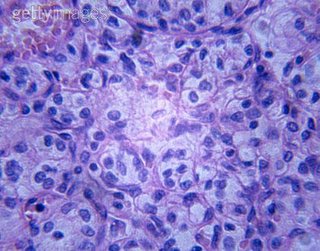
Since
Godol Hador gave me the kibud of mentioning me on his blog. I thought I would return to the topic of his
uber-post. I've been bothered by it for a couple of days now and finally had some time to put pen to paper.
From the comments:
The skeptics put up a lamo defence. They think only Mis-nagid (or maybe Ben Avuyah) can save the day for them. I mean, emailin Mis-nagid and asking him to fisk my post? How lame is that? For the record, I had nothing to do with that.For the record, I did. Sort of. Actually, I commented to Mis-Nagid that the post needs fisking not that he should do it.
The reason why I said that is that I couldn't follow the logic in it. Let me attempt a friendly fisk since it seems like the only other person that was interested in analysing the post is
S. Here we go:
The post starts out with setting the scene and building suspense. Religious doubts setting in, an unexpected visitor for Shabbos, a conversation, then debate about Faith and Reason, then a sudden revelation - "The basis of Orthodox Judaism is EXPERIENCE".
So far, I am enjoying this. Godol Hador is on the road to Damascus and far be it from me to spoil his trip.
ADDeRabbi made a comment "you've just graduated from positivism to existentialism.", but frankly what GH is saying doesn't sound like
Existentialism to me
Then there is a transition to a causality argument. Key point being made:
1) Being Orthodox "produces upstanding communities, families, and individuals."
2) Judaism is the ideal, all other religions, ethics are only good to the extent that they mirror Judaism
3) Judaism has proven this through 2000 years of history.
All these points are fiskable in themselves and may deserve their own posts on this or other blogs. However, although I was uncomfortable with these stated as facts, I moved on.
Next was a hypothesis of why some big name Rabbis were not seemingly bothered by theories that seem to conflict with fundamentalist interpretations of Judaism. Here I am a bit lost, because although it sounds very inspiring, when you analyze the actual writing, I can't actually figure out how it resolves the issue.
Before we move on to the last and most troublesome part of the post, lets analyze this point a little more. What GH seems to be saying is that we should continue to be Orthodox because it creates good people and good social/cultural structures. As someone commented it sounds like some spinoff on Reconstructionism.
GH makes a statement that Rav Kook "wasn't troubled by the DH, because even if it were true it would make no difference!...His basis for Orthodoxy was his own experience." Doesn't this seem circular?
Another point made by GH - "Only Judaism can consistently show both the experience AND the results, in every society, in every geography, in every era". How is this true? The story of Judaism is a continuous attrition due to theological splintering. Start with the Sadducees, then the Karaites, then the maskilim in France, Germany, Russia. All of these people started out experiencing, but their experience led them away from Orthodox Judaism.
OK. Now we are at the point where the post falls apart for me. We start out with the assertion that we should rely on Experience, but now we are back to proving things again.
"The Mesorah is what kept Am Yisrael going for 2000 years. As any good Scientist knows, if the experiment works, don't fiddle with the parameters!"
What does this mean? Does this make any sense from a rigorous scientific analysis? What does it mean for an experiment to "work"? What does it mean not to "fiddle with the parameters"? This sounds like the scientist is an inventor!
GH makes an analogy that no religion can repeat our results. Once again, the only results that have been mentioned so far is creating upstanding individuals, families, and communities. He states that Judaism is the only one that has done it successfully. He gives examples of others that have failed. But is this a rigorous argument. Does that prove that no other CAN do it successfully?
Once again, it is not the content that I object to, but the lack of rigor and logic in the argument.
OK. Release the hounds (I mean commenters)












